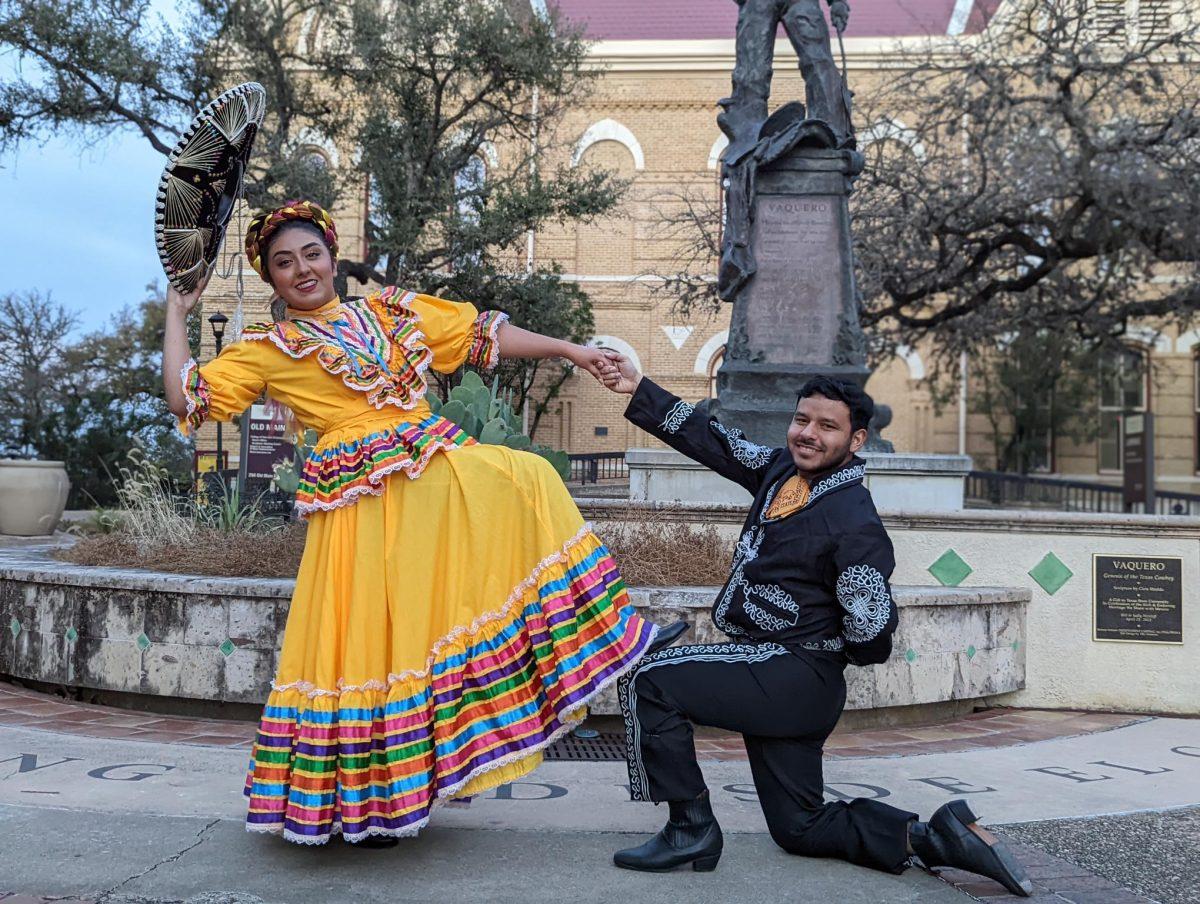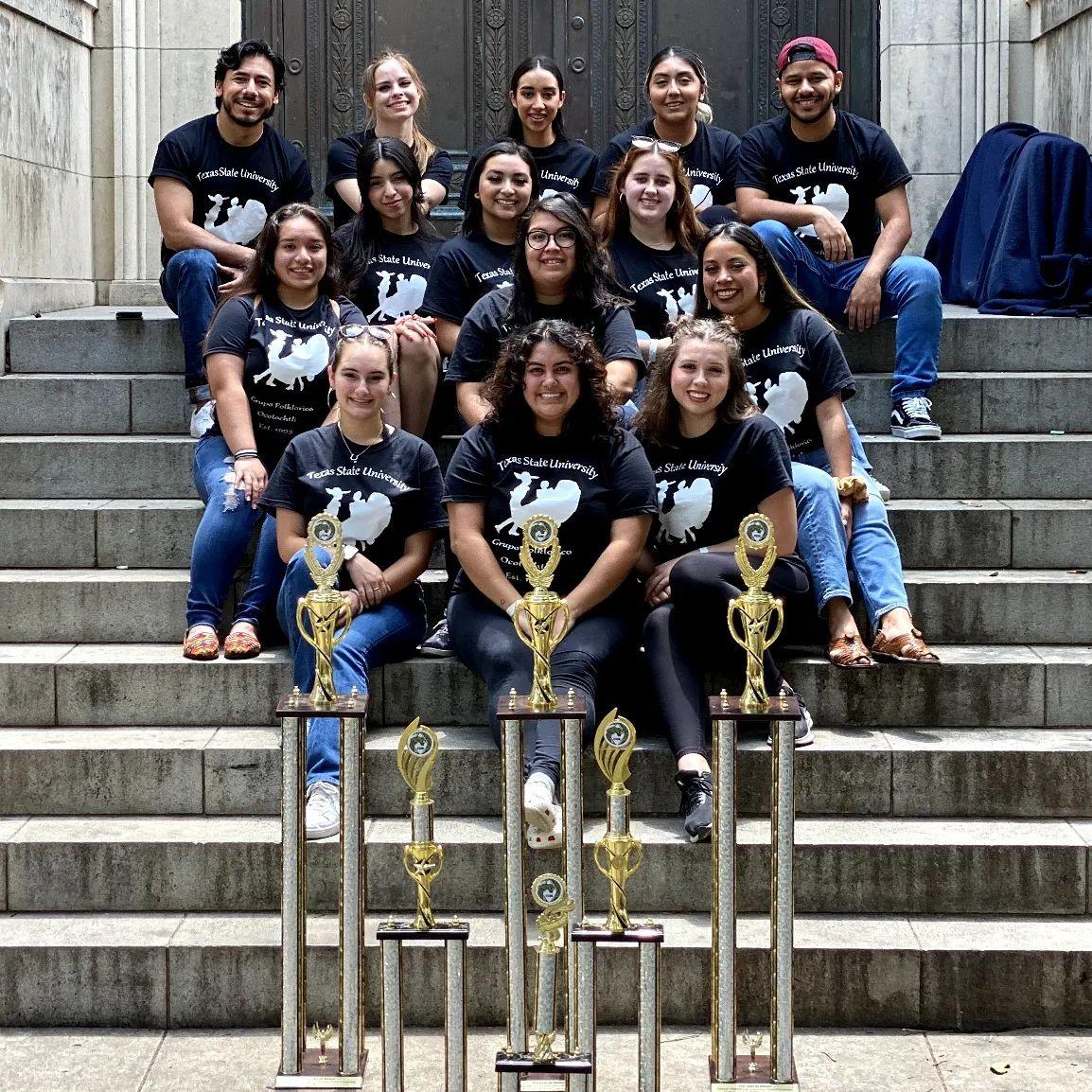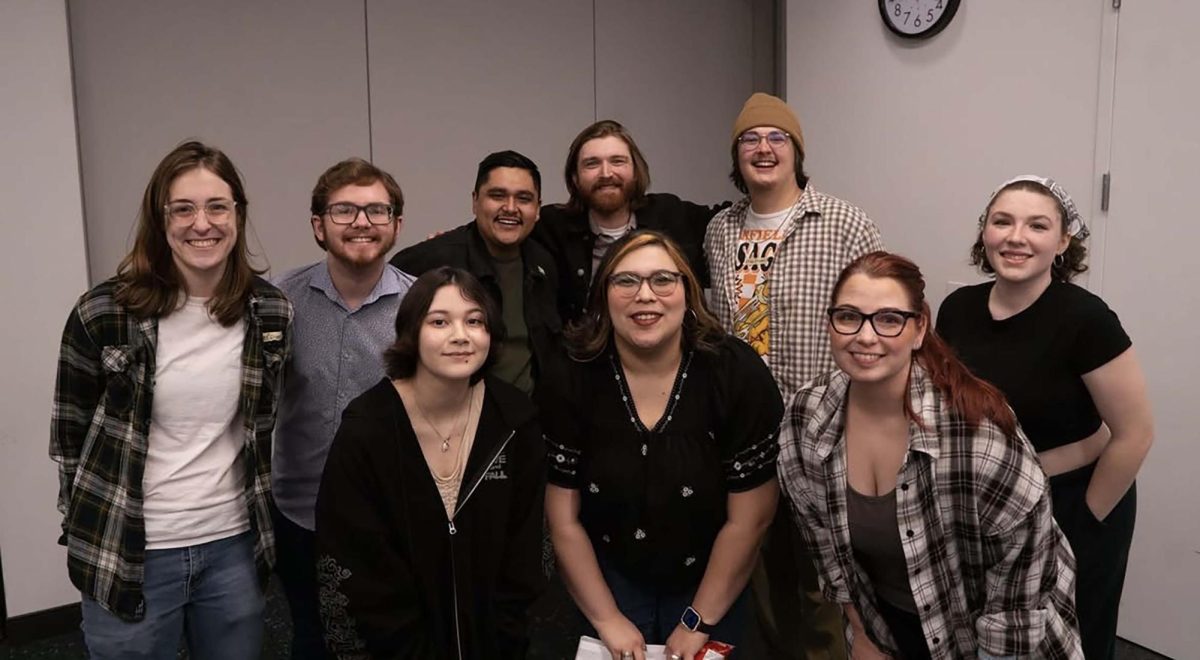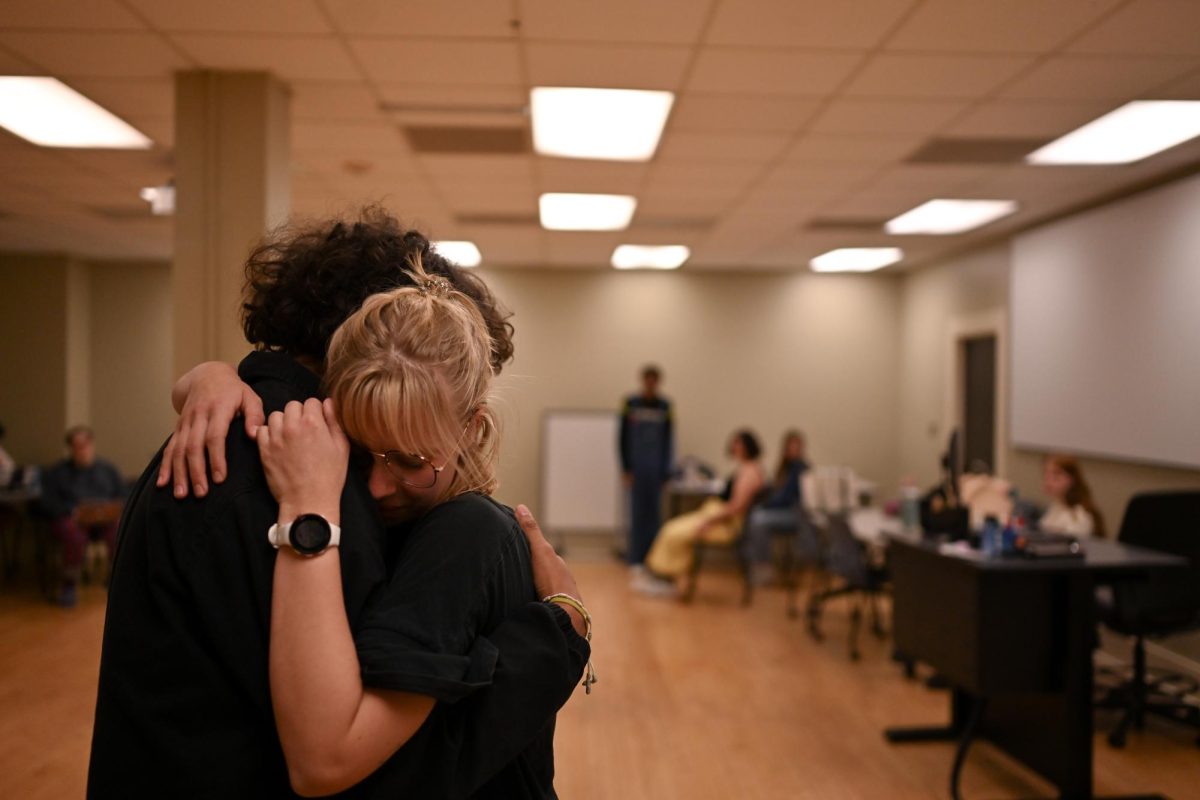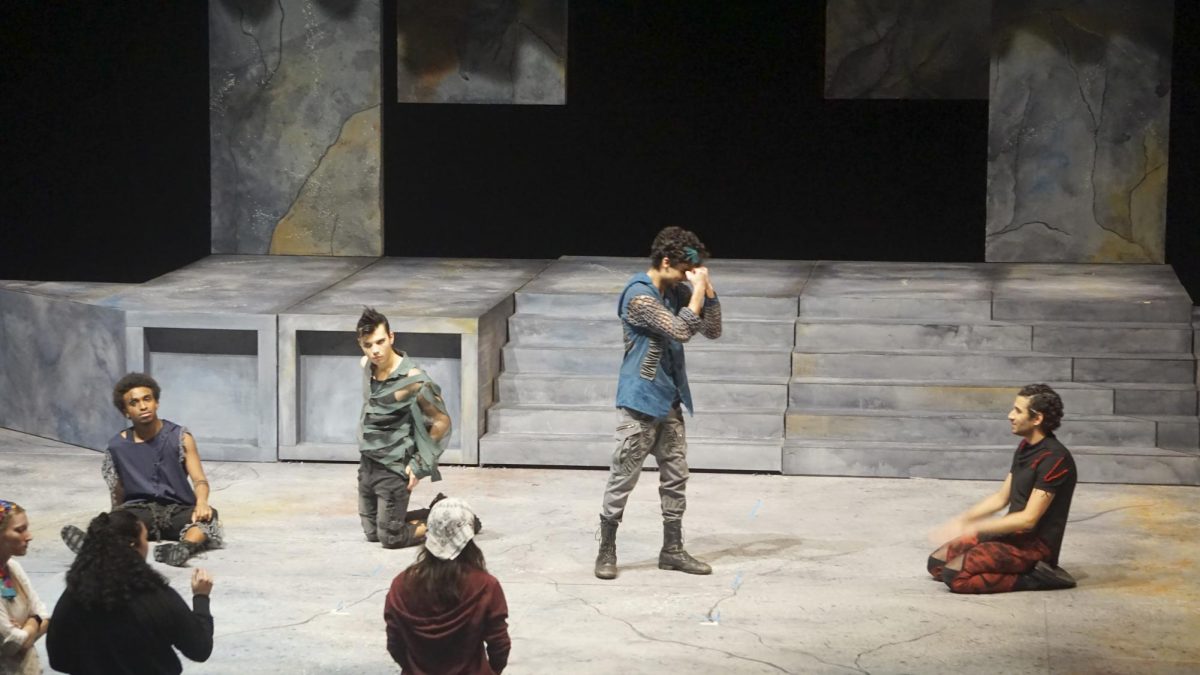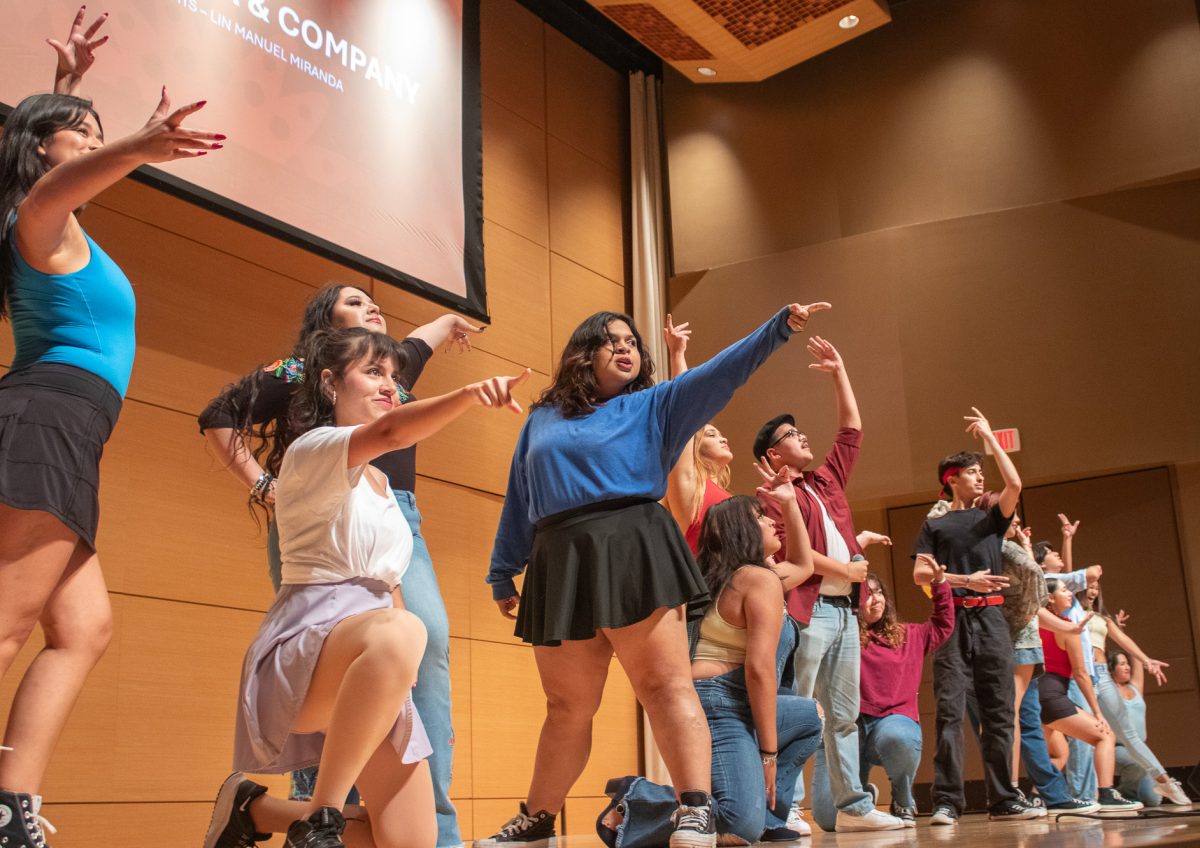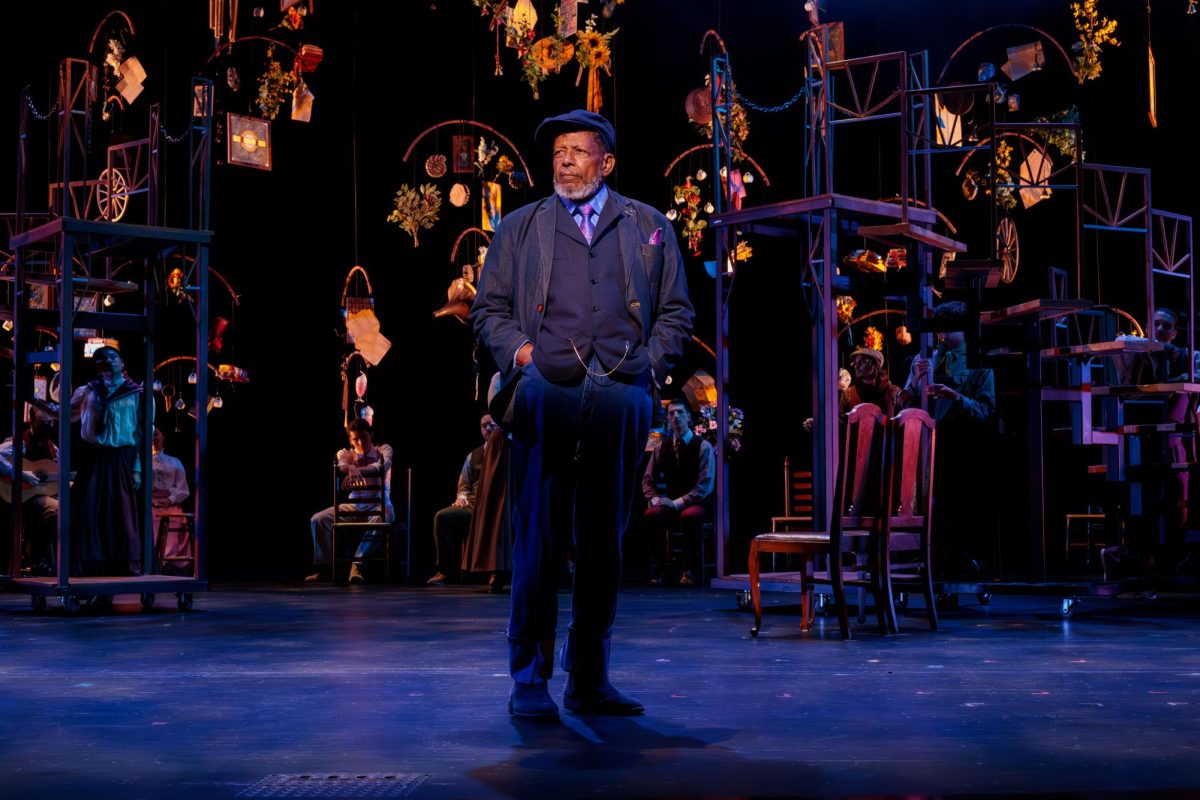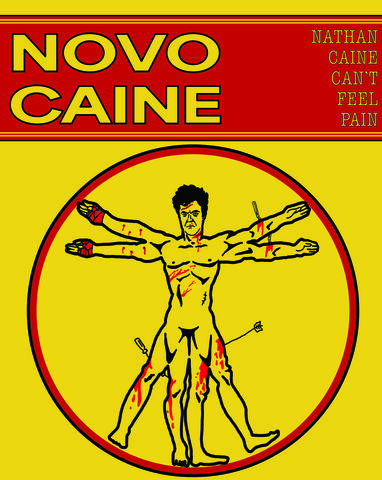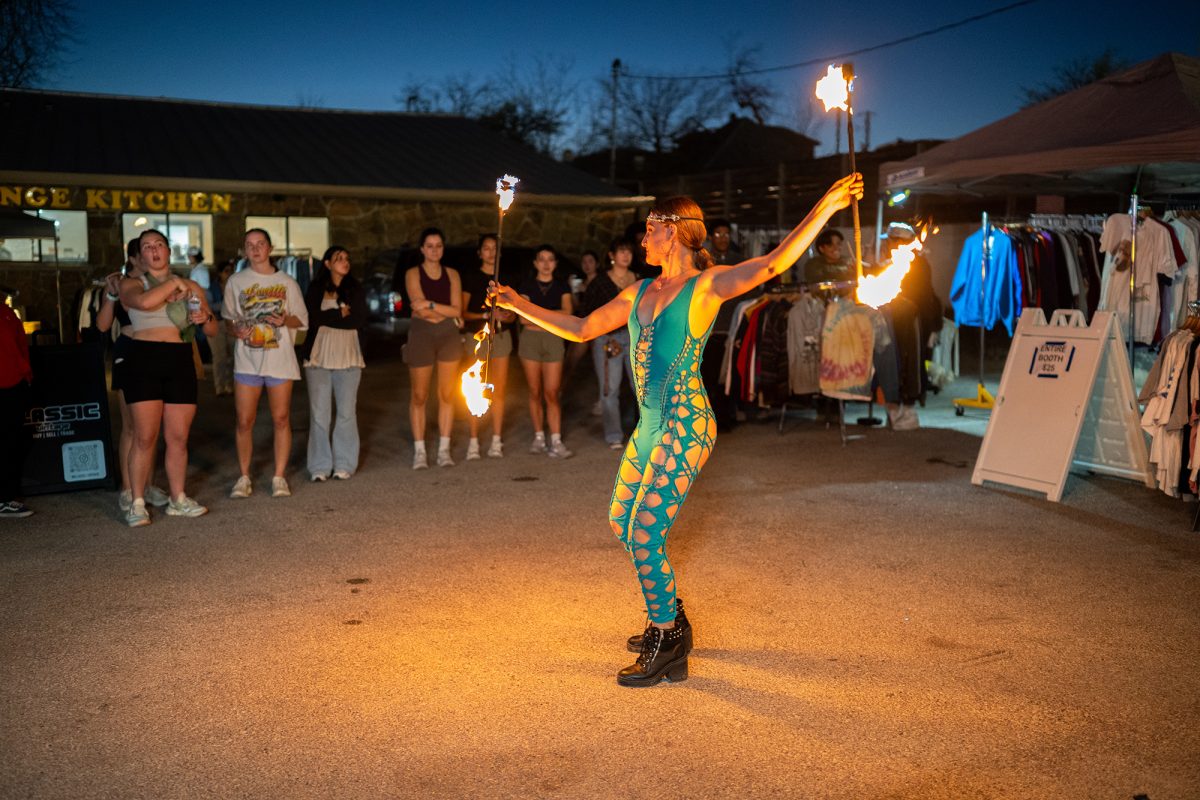Every Tuesday evening, the sound of tap shoes and Mariachi music fills room 222 of the Music Building as Grupo Folklórico Ocotochtli, Texas State’s ballet folklórico student organization, hones their craft, expresses love for their culture and prepares to take the stage.
Ballet folklórico is the telling of Mexican culture through folk dances, costumes, makeup and exaggerated large movements. It is the footwork and skirt movements that tell the specific stories of different regions of Mexico from Chiapas to Veracruz.
The dancers of Ocotochtli know very well that it’s important to share their Mexican culture and stories of the past to the audiences that watch them perform. For anthropology junior and volunteer coordinator for Ocotochtli Yasmin Mancera, it makes her proud to share her culture with others.
“I’m proud to be Mexican and I love to share that with everyone else,” Mancera said. “I want our audience to know that there are more things out there, other cultures. Folklórico shows the culture that we have, which is beautiful.”
For Bianka Gonzalez, animal science senior and incoming president of Ocotochtli, she knew at a young age she wanted to do ballet folklórico. She’s been a member of Ocotochtli since 2017.
Like Mancera, Gonzalez is happy to share her love for her culture with others through dance. Social media, she said, has played a major part in teaching others about the art form and its origins.
“It’s becoming super popular online and it makes us all happy because we love to share our culture with everyone, no matter ethnicity or who you are,” Gonzalez said.
Last year, Ocotochtli’s former president Adriana Miranda had the goal of attending competitions but the low number of dancers and finances were tough obstacles. This past spring, Gonzalez began looking for competitions in 2022 so the group could plan to attend.
“I’ve been wanting to do a competition since I joined, and I knew there are dancers in our group that have been in competition with their previous groups,” Gonzalez said. “I told Adriana maybe we can make this work.”
Although Ocotochtli was planning on making it to a competition in March in Corpus Christi, Texas, logistics made it hard for the group to attend. Finally, in May, the dance group’s storytelling abilities and love for dance won them three first-place trophies, two second-place trophies and one third-place trophy at the San Antonio Festivales de Mexico.
With the lights shining down on them, colorful skirts twirling and footwork sharp and precise, the dancers in Ocotochtli took the stage and won six of their seven entries into the competition.
Meaghan Setterbo, Ocotochtli’s historian and a communication studies senior, said the San Antonio Festivales de Mexico competition was the right fit for the group, from the size to the accessibility of the competition for the dancers.
“It was a smaller competition but less expensive as well as accessible for our members to get to which was important,” Setterbo said. “It gave us more time to prepare which was great.”
Gonzalez said nerves weren’t high until moments before the big competition. The team was hit with the sudden realization that this was a huge moment for their group, especially since the pandemic had limited their ability to perform in public.
They understood that they were a smaller group compared to much of their competition and did not have as many resources compared to the other universities in attendance. However, Mancera said the group tried their very best to succeed in having a great performance.
“Not many people know of Ocotochtli, so our main support was our family and friends,” Mancera said. “We just had to get it together and try our best with what we have.”
Setterbo added that they weren’t worried about winning. Although they shared a collection of nerves, she said the group was confident and just wanted to put on a great show and enjoy the moment after all the hard work they put in.
“I was very confident in our ability to perform well and how hard we worked on our dances,” Setterbo said. “We knew we could do well, we weren’t worried about that.”
Gonzales is proud of her folklórico group for their success. She recalls the months of long nights of preparation to ensure a showstopping performance for their very first competition.
“We worked all semester pretty much, staying till 10 p.m. for practice,” Gonzalez said. “We prepared for this competition to make sure everything was right.”
The competition also meant more to the group because for some dancers, it was their first and last competition with Ocotochtli. Some dancers were to graduate and move once the spring semester was over.
“This was very special to them that they were able to take this opportunity,” Setterbo said. “We worked hard and it paid off. It was so worth it.”
Ocotochtli won six out of their seven entries in separate subcategories under the university division. Mancera performed in the Chiapanecas Medley and El Buey, both winning dances of the competition. She described the feeling of performing as a rush and an amazing experience with her fellow dancers.
“It was good to feel the adrenaline happening again. It was special,” Mancera said. “I really enjoyed performing with my closest friends. It was beautiful.”
Along with Mancera, Setterbo also performed in Chiapanecas Medley and El Buey. She said ballet folklórico is something different than anything she’s ever done before. It’s where hard work pays off and femininity is celebrated in a culture that is patriarchal.
“You have to actively practice, rehearse, learn. It’s a huge part of your life,” Setterbo said. “We are a female dominant group. It just feels like our own revolution.”
Ocotochtli is looking forward to more dance competitions in the future, After a successful competition and wins for the group, Gonzalez has her sights set on competition season next spring with her dancers.
“Our group is shooting towards every spring going to a competition,” Gonzalez said. “Our current group we have is so lively, it feels like my second family being with the dancers.”
To keep up with Grupo Folklórico Ocotochtli follow them on Facebook, Instagram or Tiktok.
Categories:
Texas State’s Grupo Folklórico Ocotochtli shares culture through dance
Brianna Chavez, Life and Arts Contributor
June 25, 2022
Grupo Folklórico Ocotochtli dancers, recereational administration freshman Nancy Cruz and physics graduate student José Perez Chavez, strike a pose in front of Old Main.
0
Donate to The University Star
Your donation will support the student journalists of Texas State University. Your contribution will allow us to purchase equipment and cover our annual website hosting costs.
More to Discover



